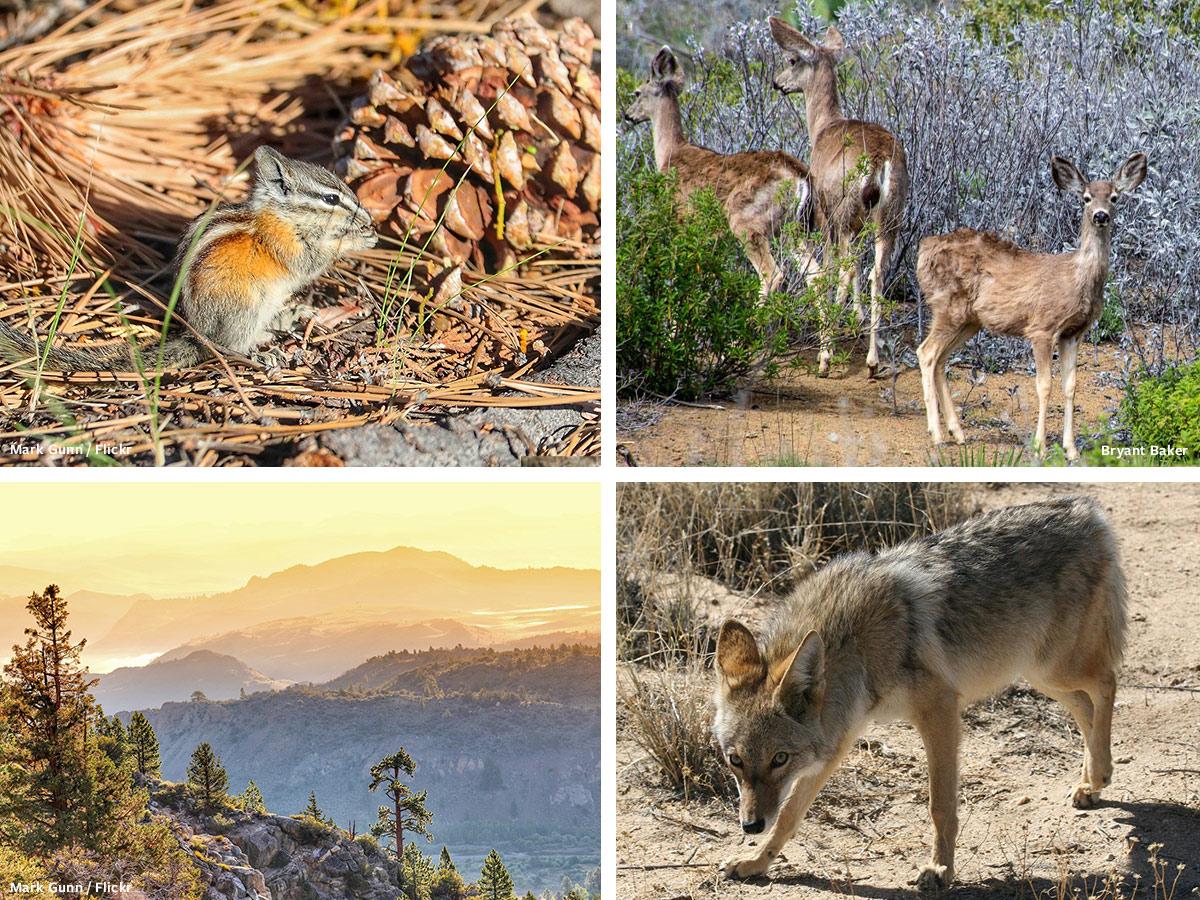California Residents: Stop CAL FIRE’s War on Wild Animals and Wilderness
This alert is no longer active, but here for reference. Animals were betrayed.
Two bills have recently been introduced into the California Senate that would allocate $5 billion over five years to chop down, rip out, douse with herbicides, and burn 500,000 acres of biodiverse habitat annually. Countless animals call this habitat home, and science says these efforts are not only futile but also counterproductive and harmful.
No one denies that California has a wildfire problem. These fires, overwhelmingly caused by humans and our corporations, are a problem not only to us, but also to ecosystems and wild animals Incredibly, as the Wall Street Journal has reported, Pacific Gas & Electric Co. has caused more than 1,500 California wildfires between June 2014 and Dec 2017, including the deadliest blaze in the state's history. Fires kill and badly burn animals, and are also responsible for separating their families, displacing their populations, and destroying their food sources, leaving animals not killed outright by the fires to starve or die of dehydration. Please urge your senator to vote against these destructive and ill-informed bills unless the language is changed to include evidence-based solutions that protect Californians of every species as well as the cherished wilderness we all rely upon.
Unfortunately, the “solution” being pursued by the California Department of Forestry and Fire Protection (CAL FIRE) —a ridiculous amount of burning, clearing, and herbicide spraying of 500,000 acres of wild land — is ineffective against the type of fire that is actually causing the most harm to California citizens and their property. 95% of the total damage caused by California fires in 2017 and 2018 was caused by nine fires (.05% of all the fires California had during that period). All nine fires occurred under extreme, wind-driven conditions. CAL FIRE openly acknowledges that its “solution” is ineffective during wind-driven fires.
Not only is CAL FIRE's solution ineffective, it is actually harmful. The issue is that chaparral — California's most distinct wildland — requires 10 or more years after a burn to take firm root again. If fires, controlled burning, clearing, or herbicide spraying happen more frequently than this, the native chaparral plants are lost, and non-native grasslands take over. This increased frequency is guaranteed in the plan under consideration. Government agencies make a lot of noise about their concerns over invasive species, but in this case, as in many, they are implementing a plan that will obliterate California's native wildlife, and negatively transform the landscape. Even the state's Department of Fish and Wildlife has spoken out publicly against CAL FIRE's plans, as has the National Park Service.
There are better solutions.
First, we must make efforts to educate the public and monitor PG&E to prevent fires from happening in the first place. This includes educating on the risks of fireworks, cigarettes, camp fires, off-roading, candles, and even lawnmowers (the blades can spark fires on especially hot and dry days). If we want to stop wildfires, we should prevent them from being started, not devastate California's ecological plenitudes.
Second, we must focus on stopping new development in fire-prone areas, and making existing communities fire resilient. Resilient structures, constructed of less flammable materials, are less susceptible to ignition from embers. Fuel breaks, which are limited strips of land that are deforested to prevent the spread of fires, can be designed to closely hug the outskirts of communities.
Solutions exist to California's wildfire problem that protect not only California's human residents, but also it's wild animals and wilderness. These are the solutions we should pursue.

This alert is no longer active, but here for reference. Animals were betrayed.


